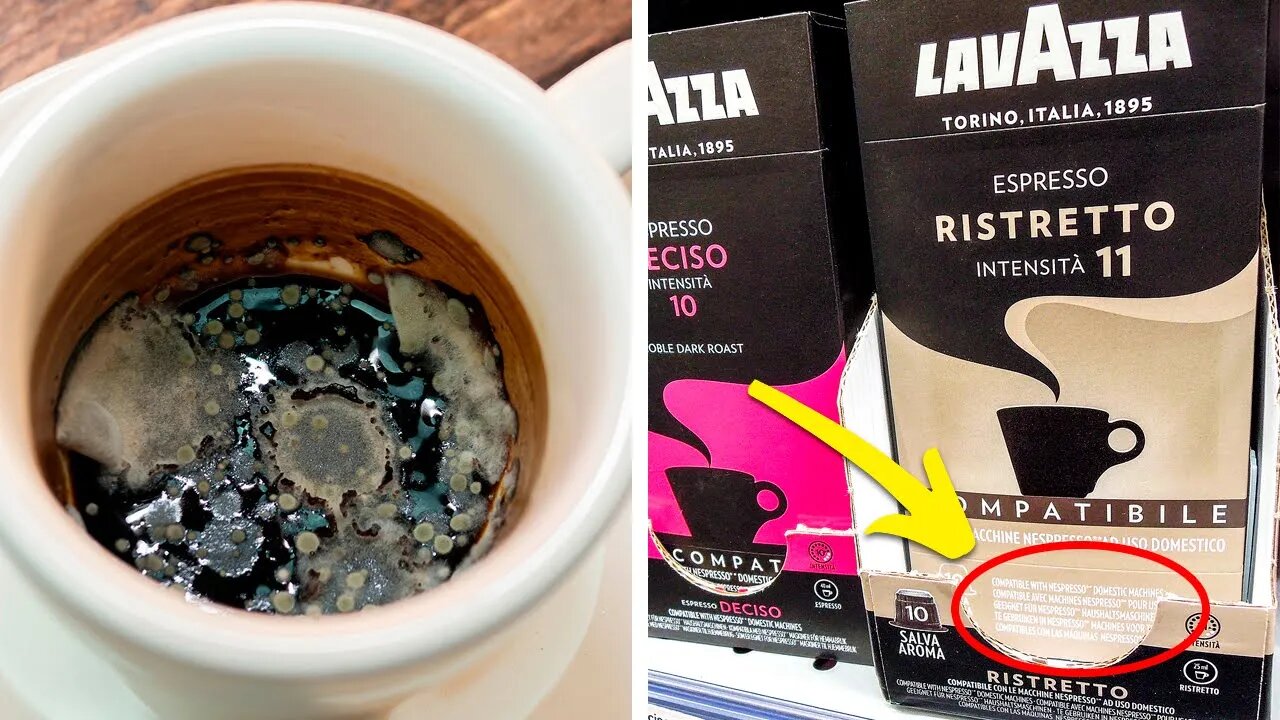Premium Only Content

If You Drink Coffee Everyday, You Should Pay Attention To This!
Although coffee was seen as a villain in the past, it is actually healthy. We have talked about it a few times on our channel.
Coffee is full of antioxidants, and many studies noted that regular consumption of coffee is linked to a reduced risk of serious diseases.
Some studies even suggest that 'coffee drinkers' may live longer. Did you know that?
However, a lot of people have been wondering if their coffee could have mold in it.
For most people, the idea of drinking a dark beverage and seeing an insect or piece of dirt in the bottom of their cup is absolutely horrifying.
But is this scenario better or worse than drinking a cup of coffee full of mold that you can't even see?
We have some bad news for you: that fine cup of coffee that you drank this morning (or 10 minutes ago) may have mold spores.
Some people say that most of the coffees available on the market are contaminated by mycotoxins, which cause poisoning when inhaled or consumed in excess, increasing the risk of diseases.
Mycotoxins are formed by the minuscule fungi that grow on plantations or incorrectly stored coffee beans.
These fungi cause health issues, like increased risk of liver cancer, brain damage, neurodegenerative problems, and olfactive issues.
Mycotoxins may also be linked to dopamine depletion, which leads to symptoms of depression and chronic fatigue.
Watch the video as we will explore some suggestions to keep mold spores away from your coffee – and, more importantly, away from your body!
0:00 Introduction
0:43 Mycotoxins in coffee
1:57 How to get rid of mold from your coffee
----------------------------------------
Facebook: https://bit.ly/38BWbw3
Pinterest: https://bit.ly/2Irvwa6
Disclaimer: The materials and the information contained on Natural Cures channel are provided for general and educational purposes only and do not constitute any legal, medical or other professional advice on any subject matter. These statements have not been evaluated by the FDA and are not intended to diagnose, treat or cure any disease. Always seek the advice of your physician or other qualified health provider prior to starting any new diet or treatment and with any questions you may have regarding a medical condition. If you have or suspect that you have a medical problem, promptly contact your health care provider.
-
 3:55
3:55
Natural Cures
11 months ago $0.74 earnedDrink This Tea Tonight to Flush Out All The Toxins from the Body
2.84K3 -
 5:08
5:08
Should I Drink This?
3 years agoFlydown by Niangua Coffee - Should I Drink This
22 -
 5:57
5:57
crazyrobert786
3 years ago $0.02 earnedHow much water i should drink everyday
58 -
 2:38
2:38
Daily News Wire
2 years ago10 Reasons Why You Should Drink Beer
231 -
 6:19
6:19
Tame Type 1
3 years agoShould Diabetics Drink Coffee?
513 -
 7:15:50
7:15:50
Phyxicx
10 hours agoRocket League with Friends! - 11/22/2024
18.7K1 -
 7:54:29
7:54:29
STARM1X16
11 hours agoFriday Night Fortnite
15.5K -
 29:51
29:51
Afshin Rattansi's Going Underground
1 day agoJimmy Dore on Ukraine & WW3: Biden Wants a War that Trump CAN’T Stop, ONLY Hope is Putin’s Restraint
73.3K32 -
 3:20:54
3:20:54
Fresh and Fit
12 hours agoExposing WHO Killed JFK w/ Cory Hughes & Tommy Sotomayor
94.5K60 -
 2:41:29
2:41:29
RanchGirlPlays
12 hours ago🔴 Red Dead Redemption: Let's go help De Santa 🤠
7.36K3